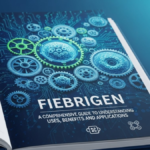The global popularity of manga, manhwa, and webtoons has exploded over the last two decades. Fans worldwide crave access to stories as soon as they are released, but official translations often take months—or never arrive at all. This gap is where fan-led scanlation groups play a pivotal role.
Among these groups, Olympus Scanlation has emerged as a recognizable name. Known for its dedication to quality translations, community spirit, and passion for storytelling, Olympus Scanlation bridges the gap between creators and international fans who otherwise wouldn’t have access to these works.
What is Olympus Scanlation?
Olympus Scanlation is a fan-driven project that focuses on translating and editing manga or manhwa into other languages, typically English. The group is composed of passionate volunteers—translators, editors, cleaners, and typesetters—who collaborate to make stories accessible to a wider audience.
Unlike official publishers, Olympus operates as a non-commercial initiative, often distributing work online for free. Their mission is clear: to connect fans worldwide with beloved stories, regardless of language barriers.
The Core Philosophy of Olympus Scanlation
Olympus Scanlation is built on three pillars:
-
Accessibility – Making sure fans can enjoy stories that may never see official global releases.
-
Community – Encouraging collaboration between fans, translators, and readers.
-
Respect for Creators – While distributing content freely, groups like Olympus Scanlation often encourage readers to support authors when official releases are available.
The Role of Olympus Scanlation in Manga Culture
Preserving Cultural Access
Many manga, manhwa, and webtoons do not receive official international translations. Olympus fills this gap, ensuring fans around the globe can enjoy niche or lesser-known titles.
Building Global Communities
Through their releases, Olympus fosters discussion forums, fan groups, and social media communities, strengthening cultural exchange.
Supporting Fandom Growth
Scanlation often acts as an introduction for fans. A reader who discovers a title through Scanlation may later buy official volumes, merchandise, or even attend conventions inspired by their newfound passion.
How Olympus Scanlation Works
1. Translation
Native speakers or advanced learners translate text from Japanese, Korean, or Chinese into English.
2. Cleaning
Editors remove the original text from scanned pages and enhance artwork quality.
3. Typesetting
The translated text is added back into the panels, matching the style of the original.
4. Proofreading
Final checks ensure accuracy, readability, and quality before release.
This collaborative workflow allows Scanlation to maintain professional standards despite being volunteer-driven.
Olympus Scanlation and Technology
Over time, scanlation groups have adapted modern tools and software to improve efficiency:
-
OCR (Optical Character Recognition) tools for faster text extraction.
-
Graphic editing software like Photoshop for cleaning and typesetting.
-
Cloud-based collaboration platforms to connect global volunteers.
By embracing technology, Olympus Scanlation ensures faster, cleaner, and more accurate releases.
Benefits of Olympus Scanlation
For Readers
-
Immediate access to stories otherwise unavailable.
-
Exposure to diverse genres and cultural storytelling.
-
A sense of belonging in fan-driven communities.
For Creators
While scanlation exists in a legal gray area, it has indirect benefits:
-
Expanding international fan bases.
-
Encouraging official publishers to license popular titles.
-
Boosting merchandise and adaptation sales.
For the Community
-
Building cross-cultural understanding.
-
Creating opportunities for volunteers to develop language and editing skills.
-
Strengthening the global manga/anime fandom.
Challenges Facing Olympus Scanlation
Legal Issues
Scanlation often operates in a copyright gray zone, leading to takedowns or conflicts with publishers.
Sustainability
As a volunteer-driven initiative, Olympus Scanlation depends on time, passion, and resources of its members. Burnout and team turnover are common.
Competition
With many scanlation groups online, maintaining quality and speed is a constant challenge.
Ethical Questions
Balancing fan access with respect for creators’ intellectual property remains a key discussion point.
Olympus Scanlation vs. Official Releases
While official publishers prioritize quality, legality, and profit, Olympus Scanlation prioritizes speed, accessibility, and fan service.
Both coexist in the ecosystem:
-
Scanlation introduces fans to new works.
-
Official releases monetize content and support creators.
Often, readers begin with scanlations but purchase official copies once available.
The Future of Olympus Scanlation
As manga and manhwa become increasingly global, Scanlation faces new opportunities and challenges:
-
Collaboration with Publishers – some groups have already transitioned into official partnerships.
-
Focus on Niche Works – while mainstream titles get official releases, Scanlation may specialize in underrated series.
-
Community Expansion – growing online platforms to host discussions, fan art, and translations.
-
Technological Integration – using AI tools for faster, but carefully human-checked, translation.
The future of Olympus lies in balancing fan passion, ethical responsibility, and global accessibility.
Conclusion
Olympus Scanlation is more than just a scanlation group—it’s a community movement. By translating and sharing manga and manhwa across languages, it connects fans worldwide, introduces hidden gems, and builds bridges between cultures.
While challenges around legality and sustainability remain, Olympus has played an undeniable role in the growth of the global manga fandom. For many fans, it’s the first step into a lifelong passion, and for creators, it’s a pathway to global recognition.
In the evolving landscape of digital storytelling, Olympus represents the power of community, creativity, and shared love for stories.







